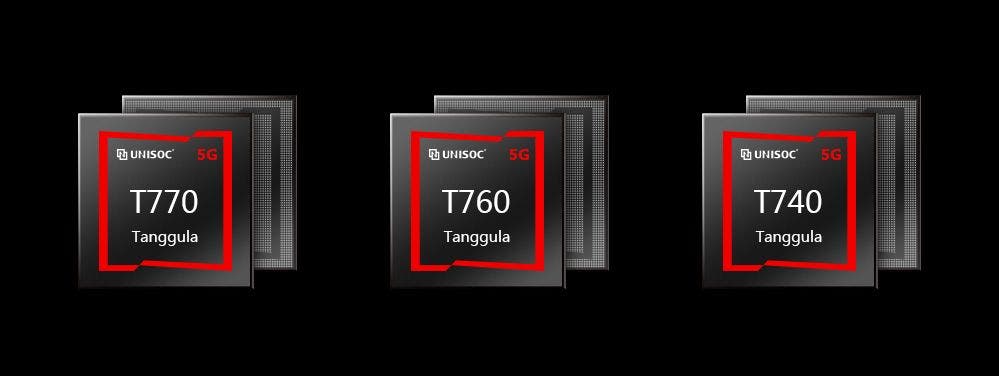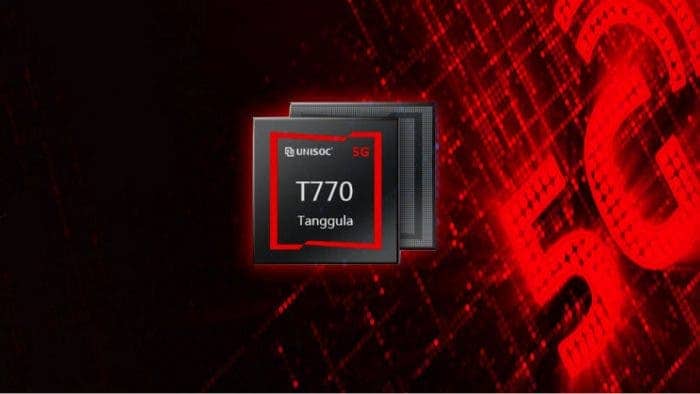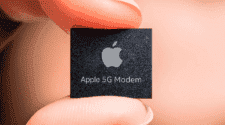Unisoc may not be the most popular name in the market of chipsets. However, the Chinese Semiconductor company is working hard to become a relevant contender in the market and a viable option for the various smartphone firms out there. Unisoc already partnered with Xiaomi, but we can say that one of its most relevant partners currently is Nokia. HMD Global already released smartphones rocking Unisoc chipsets, and the list will grow in the coming months. Unisoc wants more companies to use their chipsets, and today it is giving an important step to becoming a viable option in this fierce market with the announcement of UNISOC Tangulla 5G chipsets.
Unisoc already has 5G chips, now it is improving their identity. The new UNISOC Tanggula lineup comes to further establish the company’s identity in the market. After all, in a market with popular names such as Snapdragon and Dimensity, the Chinese firm certainly needs a name that is more attractive and quite addicting. Moreover, UNISOC states that the name was adopted from the name of the source of the Yangtze River.
Unisoc Tanggula 6, 7, 8, and 9 coming to expand the competition in the 5G segment
The UNISOC Tanggula lineup will be classified into four series – Tanggula 6, Tanggula 7, Tanggula 8, and Tanggula 9. The first is meant for the budget segment, while the latter will take on Qualcomm’s Snapdragon 800 series. The Tanggula 7 will be an intermediary option, while the Tanggula 8 will come for the “premium mid-range” or “upper-mid-range” segment. So far, the company only unveiled chipsets under the Tangulla 7 series. However, more chipsets should come in a near future. It’s important to reinforce that this is a bold step for the Chinese semiconductor industry.
The companies in China are reinforcing their local manufacturing to provide viable options for the local companies. After all, Huawei’s struggle has shown to the entire market how smartphone companies in China are dependent on foreign technologies. A strong semiconductor company in China, working with cutting-edge processes, would provide Huawei enough resources to stay relevant in the market.

Gizchina News of the week
The Tanggula 7 lineup includes three chipsets. The UNISOC T770, T740, and T760. Check their specifications below:
| UNISOC T770 | T740 | T760 |
|---|---|---|
| 6nm EUV architecture | 6nm EUV architecture | 12nm architecture |
| Max Clock: 2.5GHz
1 x Cortex-A76 + 3 x Cortex-A76 + 4 x Cortex-A55 |
Max Clock: 2.2GHz 1x Cortex-A76 + 4x Cortex-A55 |
Max Clock: 2.0GHz
4x Cortex-A75 + 4x Cortex-A55 |
| Arm Mali G57 FHD+ at 120fps, QHD+ at 60fps |
Arm Mali G57
FHD+ at 90fps |
IMG9446
FHD+ at 60fps, QHD+ at 60fps |
| LPDDR4, LPDDR4X (2133 MHz)
eMMC 5.1 + UFS 3.1 |
LPDDR4, LPDDR4X (2133 MHz)
eMMC 5.1 + UFS 3.1 |
LPDDR4, LPDDR4x, LPDDR4y (1866MHz)
eMMC 5.1, UFS 2.1 |
| Vivimagic 6.0 Image Engine 4-core ISP architecture Up to 108MP camera |
Vivimagic 6.0 Image Engine
Up to 64MP quad camera |
Up to 64MP |
| 4.8 TOPS | 2.4 TOPS | 3.2 TOPS |
| NSA, SA b/g/n/11ac Bluetooth 5.0 GPS, GLONASS, Beidou, and Galileo |
NSA, SA b/g/n/11ac Bluetooth 5.0 GPS, GLONASS, Beidou, and Galileo |
NSA, SA b/g/n/11ac Bluetooth 5.0 GPS, GLONASS, Beidou, and Galileo |
We can see that the T760 is an entry-level option in the Tanggula 7 lineup. The T740 is also a decent option featuring a 6nm process while the T770 will lead the way with its 2.4GHz. The advanced chip will go official in July 2021. We expect more details to be revealed in a near future.
We are curious to see which companies will bet on Unisoc solutions. The 5G demand in the market will certainly be a determining factor that can make the company succeed with the newer chips. MediaTek, for example, has increased its sales after the arrival of Dimensity chips which were important for bringing 5G smartphones to lower pricing points.





